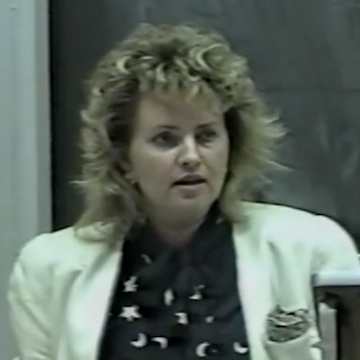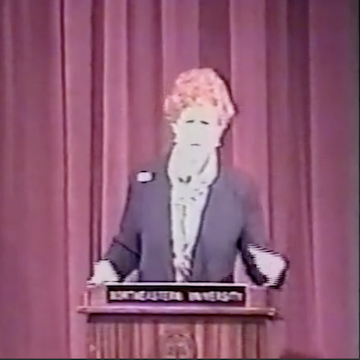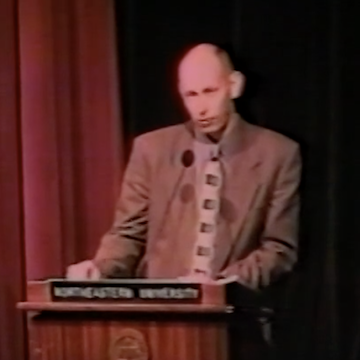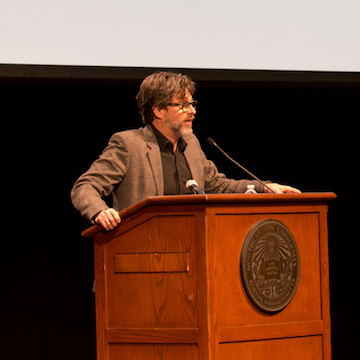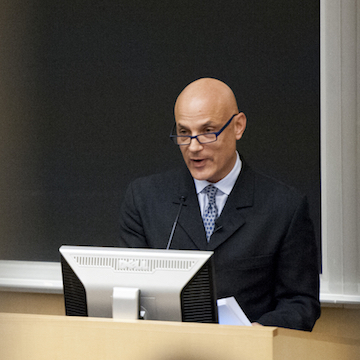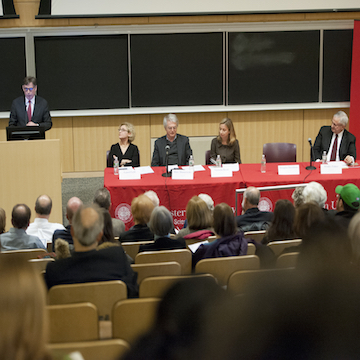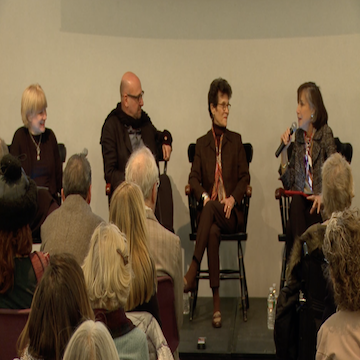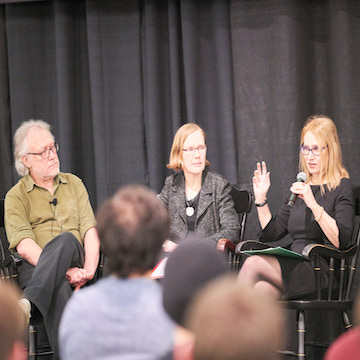Warning: Undefined variable $img_metadata in /mnt/CERES/holocaustawarenessarchives/wp-content/plugins/drs-toolkit-wp-plugin/inc/tiles_shortcode.php on line 126
Warning: Undefined variable $img_metadata in /mnt/CERES/holocaustawarenessarchives/wp-content/plugins/drs-toolkit-wp-plugin/inc/tiles_shortcode.php on line 126
Warning: Undefined variable $img_metadata in /mnt/CERES/holocaustawarenessarchives/wp-content/plugins/drs-toolkit-wp-plugin/inc/tiles_shortcode.php on line 126
Warning: Undefined variable $img_metadata in /mnt/CERES/holocaustawarenessarchives/wp-content/plugins/drs-toolkit-wp-plugin/inc/tiles_shortcode.php on line 126
Warning: Undefined variable $img_metadata in /mnt/CERES/holocaustawarenessarchives/wp-content/plugins/drs-toolkit-wp-plugin/inc/tiles_shortcode.php on line 126
Warning: Undefined variable $img_metadata in /mnt/CERES/holocaustawarenessarchives/wp-content/plugins/drs-toolkit-wp-plugin/inc/tiles_shortcode.php on line 126
Warning: Undefined variable $img_metadata in /mnt/CERES/holocaustawarenessarchives/wp-content/plugins/drs-toolkit-wp-plugin/inc/tiles_shortcode.php on line 126
Warning: Undefined variable $img_metadata in /mnt/CERES/holocaustawarenessarchives/wp-content/plugins/drs-toolkit-wp-plugin/inc/tiles_shortcode.php on line 126
Warning: Undefined variable $img_metadata in /mnt/CERES/holocaustawarenessarchives/wp-content/plugins/drs-toolkit-wp-plugin/inc/tiles_shortcode.php on line 126
Warning: Undefined variable $img_metadata in /mnt/CERES/holocaustawarenessarchives/wp-content/plugins/drs-toolkit-wp-plugin/inc/tiles_shortcode.php on line 126
Warning: Undefined variable $img_metadata in /mnt/CERES/holocaustawarenessarchives/wp-content/plugins/drs-toolkit-wp-plugin/inc/tiles_shortcode.php on line 126
Warning: Undefined variable $img_metadata in /mnt/CERES/holocaustawarenessarchives/wp-content/plugins/drs-toolkit-wp-plugin/inc/tiles_shortcode.php on line 126
Warning: Undefined variable $img_metadata in /mnt/CERES/holocaustawarenessarchives/wp-content/plugins/drs-toolkit-wp-plugin/inc/tiles_shortcode.php on line 126
Warning: Undefined variable $img_metadata in /mnt/CERES/holocaustawarenessarchives/wp-content/plugins/drs-toolkit-wp-plugin/inc/tiles_shortcode.php on line 126
Warning: Undefined variable $img_metadata in /mnt/CERES/holocaustawarenessarchives/wp-content/plugins/drs-toolkit-wp-plugin/inc/tiles_shortcode.php on line 126
Warning: Undefined variable $img_metadata in /mnt/CERES/holocaustawarenessarchives/wp-content/plugins/drs-toolkit-wp-plugin/inc/tiles_shortcode.php on line 126
Warning: Undefined variable $img_metadata in /mnt/CERES/holocaustawarenessarchives/wp-content/plugins/drs-toolkit-wp-plugin/inc/tiles_shortcode.php on line 126
Robert Salomon Morton Lecture Series
In 1993, longtime professor of chemistry and mechanical engineering Bill Giessen established the Robert Salomon Morton Lecture Series. Giessen (1932-2010) grew up and was educated in Germany during and following the Nazi period. As a postdoctoral fellow at the Massachusetts Institute of Technology, he met Robert Salomon Morton in a Cambridge barbershop.
Robert Morton was born in 1906 in Frankfurt am Main, Germany, and was educated in the School of the Orthodox Synagogue, Kahal Adath Jeshurun. He was not only a witness to but also thel target of Nazi persecution in the years leading up to World War II. A particularly harrowing experience in 1934 convinced him that he had no choice but to apply for immigration to the United States -- a process that took three years, but finally resulted in his coming to Boston. For many years, he and his wife, Sophie, were caretakers of and caterers for the Hillel Foundation at Harvard University.
Giessen's and Morton's chance barbershop meeting fostered deep conversation and a long friendship between the German non-Jew and the victim of Nazi persecution. The annual Morton Memorial Lecture, which was created by Giessen to honor Morton, embodies a spirit of reconciliation and understanding.
The Morton Lecture brings to campus a distinguished speaker to deliver the keynote Holocaust Awareness Week talk. Morton lecturers have included scholars, authors, directors, lawyers, activists, and others. Notable speakers have included Deborah Lipstadt, a prominent scholar of Holocaust denial among other Holocaust topics; Pierre Sauvage, a documentary filmmaker and president of the Chambon Foundation; Al Staggs, a performance artist; and Morris Dees, co-founder of the Southern Poverty Law Center and human rights activist, among many others. Lecturers have spoken not only about the Holocaust, but also about other genocides, fulfilling the Holocaust Awareness Committee's goal of raising awareness that such tragedies continue to occur.
2023-05-18T15:01:38Z
A
CoreFile
neu:cj82n4604
northeastern:drs:library:archives
northeastern:drs:college_of_social_sciences_humanities:holocaust_awareness_committee
northeastern:drs:repository:staff
public
000065221
neu:cj82m129v
neu:cj82m129v
000065221
000065221
001670214
001670214
/downloads/neu:m04099259?datastream_id=thumbnail_1
/downloads/neu:m04099259?datastream_id=thumbnail_2
/downloads/neu:m04099259?datastream_id=thumbnail_3
/downloads/neu:m04099259?datastream_id=thumbnail_4
/downloads/neu:m04099259?datastream_id=thumbnail_5
/downloads/neu:m04099259?datastream_id=thumbnail_1
/downloads/neu:m04099259?datastream_id=thumbnail_2
/downloads/neu:m04099259?datastream_id=thumbnail_3
/downloads/neu:m04099259?datastream_id=thumbnail_4
/downloads/neu:m04099259?datastream_id=thumbnail_5
VideoFile
VideoFile
neu:cj82m129v
000065221
001670214
/downloads/neu:m04099259?datastream_id=thumbnail_1
/downloads/neu:m04099259?datastream_id=thumbnail_2
/downloads/neu:m04099259?datastream_id=thumbnail_3
/downloads/neu:m04099259?datastream_id=thumbnail_4
/downloads/neu:m04099259?datastream_id=thumbnail_5
VideoFile
Dr. Joyce Neu: 1993.
Dr. Joyce Neu: 1993.
Dr. Joyce Neu
Dr. Joyce Neu
1993
1993
Holocaust survivor Joyce Neu discusses her experiences during the Holocaust as part of events held during Northeastern University's annual Holocaust Awareness Week
Speaker
Speaker
Northeastern University (Boston, Mass.).
Holocaust Awareness Committee
Northeastern University (Boston, Mass.).
Holocaust Awareness Committee
Creator
Creator
video recordings
1993
1993
Part of lecture series, "Holocaust Awareness Committee: a time to bear witness."
Holocaust, Jewish (1939-1945)
Personal narratives
World War, 1939-1945
Personal narratives
Holocaust, Jewish (1939-1945)
Personal narratives
World War, 1939-1945
Personal narratives
Neu Joyce 1950-
Neu Joyce 1950-
http://hdl.handle.net/2047/D20211152
0039
http://hdl.handle.net/2047/D20211152
Holocaust, Jewish (1939-1945)
Personal narratives
World War, 1939-1945
Personal narratives
Dr. Joyce Neu
Robert Salomon Morton Memorial Lecture
Holocaust and Genocide Awareness Committee records (A67)
Joyce Neu
Holocaust awareness series. Morton lecture ; 1993-2005
Dr. Joyce Neu: 1993.
dr joyce neu 001993
1993/01/01
Dr. Joyce Neu
1993
Holocaust, Jewish (1939-1945) Personal narratives
World War, 1939-1945 Personal narratives
Neu Joyce 1950-
Neu, Joyce
Neu, Joyce
Northeastern University (Boston, Mass.).
Holocaust Awareness Committee
Neu, Joyce
info:fedora/afmodel:CoreFile
info:fedora/neu:cj82m129v
info:fedora/neu:cj82n4647
2023-05-18T15:02:07.452Z
Joyce Neu
"Conflict Resolution: Who is Responsible?"
1993
2023-05-17T18:30:52Z
A
CoreFile
neu:cj82m3009
northeastern:drs:college_of_social_sciences_humanities:holocaust_awareness_committee
northeastern:drs:library:archives
northeastern:drs:repository:staff
public
000065221
neu:cj82m129v
neu:cj82m129v
000065221
000065221
001670214
001670214
/downloads/neu:m0401j927?datastream_id=thumbnail_1
/downloads/neu:m0401j927?datastream_id=thumbnail_2
/downloads/neu:m0401j927?datastream_id=thumbnail_3
/downloads/neu:m0401j927?datastream_id=thumbnail_4
/downloads/neu:m0401j927?datastream_id=thumbnail_5
/downloads/neu:m0401j927?datastream_id=thumbnail_1
/downloads/neu:m0401j927?datastream_id=thumbnail_2
/downloads/neu:m0401j927?datastream_id=thumbnail_3
/downloads/neu:m0401j927?datastream_id=thumbnail_4
/downloads/neu:m0401j927?datastream_id=thumbnail_5
VideoFile
VideoFile
neu:cj82m129v
000065221
001670214
/downloads/neu:m0401j927?datastream_id=thumbnail_1
/downloads/neu:m0401j927?datastream_id=thumbnail_2
/downloads/neu:m0401j927?datastream_id=thumbnail_3
/downloads/neu:m0401j927?datastream_id=thumbnail_4
/downloads/neu:m0401j927?datastream_id=thumbnail_5
VideoFile
Michael Berenbaum: 1994.
Michael Berenbaum: 1994.
Michael Berenbaum
Michael Berenbaum
1994
1994
Michael Berenbaum's lecture given as part of Northeastern University's Holocaust Awareness Week annual events
Speaker
Speaker
Northeastern University (Boston, Mass.).
Holocaust Awareness Committee
Northeastern University (Boston, Mass.).
Holocaust Awareness Committee
Creator
Creator
video recordings
1994
1994
Part of lecture series, "Holocaust Awareness Committee: a time to bear witness."
Holocaust, Jewish (1939-1945)
World War, 1939-1945
Atrocities
Holocaust, Jewish (1939-1945)
World War, 1939-1945
Atrocities
Berenbaum Michael 1945-
Berenbaum Michael 1945-
http://hdl.handle.net/2047/D20204963
0046
http://hdl.handle.net/2047/D20204963
Holocaust, Jewish (1939-1945)
World War, 1939-1945
Atrocities
Michael Berenbaum
Robert Salomon Morton Memorial Lecture
Holocaust and Genocide Awareness Committee records (A67)
Michael Berenbaum
Holocaust awareness series. Morton lecture ; 1993-2005
Michael Berenbaum: 1994.
michael berenbaum 001994
1994/01/01
Michael Berenbaum
1994
Holocaust, Jewish (1939-1945)
World War, 1939-1945 Atrocities
Berenbaum Michael 1945-
Berenbaum, Michael
Berenbaum, Michael
Northeastern University (Boston, Mass.).
Holocaust Awareness Committee
Berenbaum, Michael
info:fedora/afmodel:CoreFile
info:fedora/neu:cj82m129v
2023-05-17T18:30:53.157Z
Michael Berenbaum
"Remembering the Holocaust through the Holocaust Museum"
1994
2023-05-17T22:47:54Z
A
CoreFile
neu:cj82n462p
northeastern:drs:library:archives
northeastern:drs:college_of_social_sciences_humanities:holocaust_awareness_committee
northeastern:drs:repository:staff
public
000065221
neu:cj82m129v
neu:cj82m129v
000065221
000065221
001670214
001670214
/downloads/neu:m0409944h?datastream_id=thumbnail_1
/downloads/neu:m0409944h?datastream_id=thumbnail_2
/downloads/neu:m0409944h?datastream_id=thumbnail_3
/downloads/neu:m0409944h?datastream_id=thumbnail_4
/downloads/neu:m0409944h?datastream_id=thumbnail_5
/downloads/neu:m0409944h?datastream_id=thumbnail_1
/downloads/neu:m0409944h?datastream_id=thumbnail_2
/downloads/neu:m0409944h?datastream_id=thumbnail_3
/downloads/neu:m0409944h?datastream_id=thumbnail_4
/downloads/neu:m0409944h?datastream_id=thumbnail_5
VideoFile
VideoFile
neu:cj82m129v
000065221
001670214
/downloads/neu:m0409944h?datastream_id=thumbnail_1
/downloads/neu:m0409944h?datastream_id=thumbnail_2
/downloads/neu:m0409944h?datastream_id=thumbnail_3
/downloads/neu:m0409944h?datastream_id=thumbnail_4
/downloads/neu:m0409944h?datastream_id=thumbnail_5
VideoFile
Allan A. Ryan: 1996.
Allan A. Ryan: 1996.
Allan A. Ryan
Allan A. Ryan
1996
1996
Allan A. Ryan's lecture given as part of Northeastern University's Holocaust Awareness Week annual events
Speaker
Speaker
Northeastern University (Boston, Mass.).
Holocaust Awareness Committee
Northeastern University (Boston, Mass.).
Holocaust Awareness Committee
Creator
Creator
video recordings
1996
1996
Part of lecture series, "Holocaust Awareness Committee: a time to bear witness."
Holocaust, Jewish (1939-1945)
World War, 1939-1945
Atrocities
Holocaust, Jewish (1939-1945)
World War, 1939-1945
Atrocities
Ryan Allan A.
Ryan Allan A.
http://hdl.handle.net/2047/D20211157
0073
http://hdl.handle.net/2047/D20211157
Holocaust, Jewish (1939-1945)
World War, 1939-1945
Atrocities
Allan A. Ryan
Robert Salomon Morton Memorial Lecture
Holocaust and Genocide Awareness Committee records (A67)
Allan A. Ryan
Holocaust awareness series. Morton lecture ; 1993-2005
Allan A. Ryan: 1996.
allan a ryan 001996
1996/01/01
Allan A. Ryan
1996
Holocaust, Jewish (1939-1945)
World War, 1939-1945 Atrocities
Ryan Allan A.
Ryan, Allan A.
Ryan, Allan A.
Northeastern University (Boston, Mass.).
Holocaust Awareness Committee
Ryan, Allan A.
info:fedora/afmodel:CoreFile
info:fedora/neu:cj82m129v
2023-05-17T22:47:55.113Z
Allan A. Ryan
"Nazi War Criminals in America"
1996
2023-05-17T18:33:47Z
A
CoreFile
neu:cj82m3319
northeastern:drs:college_of_social_sciences_humanities:holocaust_awareness_committee
northeastern:drs:library:archives
northeastern:drs:repository:staff
public
000065221
neu:cj82m129v
neu:cj82m129v
000065221
000065221
001670214
001670214
/downloads/neu:m0401m369?datastream_id=thumbnail_1
/downloads/neu:m0401m369?datastream_id=thumbnail_2
/downloads/neu:m0401m369?datastream_id=thumbnail_3
/downloads/neu:m0401m369?datastream_id=thumbnail_4
/downloads/neu:m0401m369?datastream_id=thumbnail_5
/downloads/neu:m0401m369?datastream_id=thumbnail_1
/downloads/neu:m0401m369?datastream_id=thumbnail_2
/downloads/neu:m0401m369?datastream_id=thumbnail_3
/downloads/neu:m0401m369?datastream_id=thumbnail_4
/downloads/neu:m0401m369?datastream_id=thumbnail_5
VideoFile
VideoFile
neu:cj82m129v
000065221
001670214
/downloads/neu:m0401m369?datastream_id=thumbnail_1
/downloads/neu:m0401m369?datastream_id=thumbnail_2
/downloads/neu:m0401m369?datastream_id=thumbnail_3
/downloads/neu:m0401m369?datastream_id=thumbnail_4
/downloads/neu:m0401m369?datastream_id=thumbnail_5
VideoFile
John Weiss: 1997.
John Weiss: 1997.
John Weiss
John Weiss
1997
1997
John Weiss's lecture given as part of Northeastern University's Holocaust Awareness Week annual events
Speaker
Speaker
Northeastern University (Boston, Mass.).
Holocaust Awareness Committee
Northeastern University (Boston, Mass.).
Holocaust Awareness Committee
Creator
Creator
video recordings
1997
1997
Part of lecture series, "Holocaust Awareness Committee: a time to bear witness."
Holocaust, Jewish (1939-1945)
World War, 1939-1945
Atrocities
Holocaust, Jewish (1939-1945)
World War, 1939-1945
Atrocities
Weiss John
Weiss John
http://hdl.handle.net/2047/D20205007
0083
http://hdl.handle.net/2047/D20205007
Holocaust, Jewish (1939-1945)
World War, 1939-1945
Atrocities
John Weiss
Robert Salomon Morton Memorial Lecture
Holocaust and Genocide Awareness Committee records (A67)
John Weiss
Holocaust awareness series. Morton lecture ; 1993-2005.
John Weiss: 1997.
john weiss 001997
1997/01/01
John Weiss
1997
Holocaust, Jewish (1939-1945)
World War, 1939-1945 Atrocities
Weiss John
Weiss, John
Weiss, John
Northeastern University (Boston, Mass.).
Holocaust Awareness Committee
Weiss, John
info:fedora/afmodel:CoreFile
info:fedora/neu:cj82m129v
2023-05-17T18:33:47.785Z
John Weiss
"Why Germany?"
1997
2025-08-19T18:34:12Z
A
CoreFile
neu:cj82m354m
northeastern:drs:repository:staff
northeastern:drs:college_of_social_sciences_humanities:holocaust_awareness_committee
northeastern:drs:library:archives
public
000065221
neu:cj82m129v
neu:cj82m129v
000065221
000065221
001670214
001670214
/downloads/neu:m0401n86q?datastream_id=thumbnail_1
/downloads/neu:m0401n86q?datastream_id=thumbnail_2
/downloads/neu:m0401n86q?datastream_id=thumbnail_3
/downloads/neu:m0401n86q?datastream_id=thumbnail_4
/downloads/neu:m0401n86q?datastream_id=thumbnail_5
/downloads/neu:m0401n86q?datastream_id=thumbnail_1
/downloads/neu:m0401n86q?datastream_id=thumbnail_2
/downloads/neu:m0401n86q?datastream_id=thumbnail_3
/downloads/neu:m0401n86q?datastream_id=thumbnail_4
/downloads/neu:m0401n86q?datastream_id=thumbnail_5
VideoFile
VideoFile
neu:cj82m129v
000065221
001670214
/downloads/neu:m0401n86q?datastream_id=thumbnail_1
/downloads/neu:m0401n86q?datastream_id=thumbnail_2
/downloads/neu:m0401n86q?datastream_id=thumbnail_3
/downloads/neu:m0401n86q?datastream_id=thumbnail_4
/downloads/neu:m0401n86q?datastream_id=thumbnail_5
VideoFile
Pierre Sauvage: 1998.
Pierre Sauvage: 1998.
Pierre Sauvage
Pierre Sauvage
1998
1998
Pierre Sauvage's lecture given as part of Northeastern University's Holocaust Awareness Week annual events
Speaker
Speaker
Northeastern University (Boston, Mass.).
Holocaust Awareness Committee
Northeastern University (Boston, Mass.).
Holocaust Awareness Committee
Creator
Creator
video recordings
1998
1998
English language captioning provided by Northeastern University Library staff.
Part of lecture series, "Holocaust Awareness Committee: a time to bear witness."
Holocaust, Jewish (1939-1945)
World War, 1939-1945
Atrocities
Holocaust, Jewish (1939-1945)
World War, 1939-1945
Atrocities
Sauvage Pierre
Sauvage Pierre
http://hdl.handle.net/2047/D20205047
0101
http://hdl.handle.net/2047/D20205047
Holocaust, Jewish (1939-1945)
World War, 1939-1945
Atrocities
Pierre Sauvage
Robert Salomon Morton Memorial Lecture
Holocaust and Genocide Awareness Committee records (A67)
Pierre Sauvage
Holocaust awareness series. Morton lecture ; 1993-2005
Pierre Sauvage: 1998.
pierre sauvage 001998
1998/01/01
Pierre Sauvage
1998
Holocaust, Jewish (1939-1945)
World War, 1939-1945 Atrocities
Sauvage Pierre
Sauvage, Pierre
Sauvage, Pierre
Northeastern University (Boston, Mass.).
Holocaust Awareness Committee
Sauvage, Pierre
info:fedora/afmodel:CoreFile
info:fedora/neu:cj82m129v
2025-08-19T18:34:12.54Z
Pierre Sauvage
"Remembering the Holocaust - Americans Who Cared"
1998
2023-05-17T17:21:54Z
A
CoreFile
neu:cj82m400h
northeastern:drs:college_of_social_sciences_humanities:holocaust_awareness_committee
northeastern:drs:library:archives
northeastern:drs:repository:staff
public
000065221
neu:cj82m129v
neu:cj82m129v
000065221
000065221
001670214
001670214
/downloads/neu:m0401r321?datastream_id=thumbnail_1
/downloads/neu:m0401r321?datastream_id=thumbnail_2
/downloads/neu:m0401r321?datastream_id=thumbnail_3
/downloads/neu:m0401r321?datastream_id=thumbnail_4
/downloads/neu:m0401r321?datastream_id=thumbnail_5
/downloads/neu:m0401r321?datastream_id=thumbnail_1
/downloads/neu:m0401r321?datastream_id=thumbnail_2
/downloads/neu:m0401r321?datastream_id=thumbnail_3
/downloads/neu:m0401r321?datastream_id=thumbnail_4
/downloads/neu:m0401r321?datastream_id=thumbnail_5
VideoFile
VideoFile
neu:cj82m129v
000065221
001670214
/downloads/neu:m0401r321?datastream_id=thumbnail_1
/downloads/neu:m0401r321?datastream_id=thumbnail_2
/downloads/neu:m0401r321?datastream_id=thumbnail_3
/downloads/neu:m0401r321?datastream_id=thumbnail_4
/downloads/neu:m0401r321?datastream_id=thumbnail_5
VideoFile
James Young: 1999.
James Young: 1999.
James Young
James Young
1999
1999
James E. Young's lecture given as part of Northeastern University's Holocaust Awareness Week annual events
Speaker
Speaker
Northeastern University (Boston, Mass.).
Holocaust Awareness Committee
Northeastern University (Boston, Mass.).
Holocaust Awareness Committee
Creator
Creator
video recordings
1999
1999
Part of lecture series, "Holocaust Awareness Committee: a time to bear witness."
Holocaust, Jewish (1939-1945)
World War, 1939-1945
Atrocities
Holocaust, Jewish (1939-1945)
World War, 1939-1945
Atrocities
Young James Edward
Young James Edward
http://hdl.handle.net/2047/D20205145
0112
http://hdl.handle.net/2047/D20205145
Holocaust, Jewish (1939-1945)
World War, 1939-1945
Atrocities
James Young
Robert Salomon Morton Memorial Lecture
Holocaust and Genocide Awareness Committee records (A67)
James E. Young
Holocaust awareness series. Morton lecture ; 1993-2005
James Young: 1999.
james young 001999
1999/01/01
James Young
1999
Holocaust, Jewish (1939-1945)
World War, 1939-1945 Atrocities
Young James Edward
Young, James Edward
Young, James Edward
Northeastern University (Boston, Mass.).
Holocaust Awareness Committee
Young, James Edward
info:fedora/afmodel:CoreFile
info:fedora/neu:cj82m129v
2023-05-17T17:22:08.624Z
James Young
"Germany's Holocaust Memorial Problem - and Mine"
1999
2023-05-17T17:23:58Z
A
CoreFile
neu:cj82m414v
northeastern:drs:college_of_social_sciences_humanities:holocaust_awareness_committee
northeastern:drs:library:archives
northeastern:drs:repository:staff
public
000065221
neu:cj82m129v
neu:cj82m129v
000065221
000065221
001670214
001670214
/downloads/neu:m0401r84s?datastream_id=thumbnail_1
/downloads/neu:m0401r84s?datastream_id=thumbnail_2
/downloads/neu:m0401r84s?datastream_id=thumbnail_3
/downloads/neu:m0401r84s?datastream_id=thumbnail_4
/downloads/neu:m0401r84s?datastream_id=thumbnail_5
/downloads/neu:m0401r84s?datastream_id=thumbnail_1
/downloads/neu:m0401r84s?datastream_id=thumbnail_2
/downloads/neu:m0401r84s?datastream_id=thumbnail_3
/downloads/neu:m0401r84s?datastream_id=thumbnail_4
/downloads/neu:m0401r84s?datastream_id=thumbnail_5
VideoFile
VideoFile
neu:cj82m129v
000065221
001670214
/downloads/neu:m0401r84s?datastream_id=thumbnail_1
/downloads/neu:m0401r84s?datastream_id=thumbnail_2
/downloads/neu:m0401r84s?datastream_id=thumbnail_3
/downloads/neu:m0401r84s?datastream_id=thumbnail_4
/downloads/neu:m0401r84s?datastream_id=thumbnail_5
VideoFile
Al Staggs: 2000.
Al Staggs: 2000.
Al Staggs
Al Staggs
2000
2000
Al Staggs's lecture given as part of Northeastern University's Holocaust Awareness Week annual events
Speaker
Speaker
Northeastern University (Boston, Mass.).
Holocaust Awareness Committee
Northeastern University (Boston, Mass.).
Holocaust Awareness Committee
Creator
Creator
video recordings
2000
2000
Part of lecture series, "Holocaust Awareness Committee: a time to bear witness."
Holocaust, Jewish (1939-1945)
World War, 1939-1945
Atrocities
Holocaust, Jewish (1939-1945)
World War, 1939-1945
Atrocities
Staggs Alvin D.
Staggs Alvin D.
http://hdl.handle.net/2047/D20205159
0126
http://hdl.handle.net/2047/D20205159
Holocaust, Jewish (1939-1945)
World War, 1939-1945
Atrocities
Al Staggs
Robert Salomon Morton Memorial Lecture
Holocaust and Genocide Awareness Committee records (A67)
Al Staggs
Holocaust awareness series. Morton lecture ; 1993-2005
Al Staggs: 2000.
al staggs 002000
2000/01/01
Al Staggs
2000
Holocaust, Jewish (1939-1945)
World War, 1939-1945 Atrocities
Staggs Alvin D.
Staggs, Alvin D.
Staggs, Alvin D.
Northeastern University (Boston, Mass.).
Holocaust Awareness Committee
Staggs, Alvin D.
info:fedora/afmodel:CoreFile
info:fedora/neu:cj82m129v
2023-11-06T18:33:37.598Z
Al Staggs
"A View From the Underside"
2000
2023-05-17T17:26:23Z
A
CoreFile
neu:cj82m425c
northeastern:drs:college_of_social_sciences_humanities:holocaust_awareness_committee
northeastern:drs:library:archives
northeastern:drs:repository:staff
public
000065221
neu:cj82m129v
neu:cj82m129v
000065221
000065221
001670214
001670214
/downloads/neu:m0401s174?datastream_id=thumbnail_1
/downloads/neu:m0401s174?datastream_id=thumbnail_2
/downloads/neu:m0401s174?datastream_id=thumbnail_3
/downloads/neu:m0401s174?datastream_id=thumbnail_4
/downloads/neu:m0401s174?datastream_id=thumbnail_5
/downloads/neu:m0401s174?datastream_id=thumbnail_1
/downloads/neu:m0401s174?datastream_id=thumbnail_2
/downloads/neu:m0401s174?datastream_id=thumbnail_3
/downloads/neu:m0401s174?datastream_id=thumbnail_4
/downloads/neu:m0401s174?datastream_id=thumbnail_5
VideoFile
VideoFile
neu:cj82m129v
000065221
001670214
/downloads/neu:m0401s174?datastream_id=thumbnail_1
/downloads/neu:m0401s174?datastream_id=thumbnail_2
/downloads/neu:m0401s174?datastream_id=thumbnail_3
/downloads/neu:m0401s174?datastream_id=thumbnail_4
/downloads/neu:m0401s174?datastream_id=thumbnail_5
VideoFile
Zamir Chorale: 2001.
Zamir Chorale: 2001.
Zamir Chorale
Zamir Chorale
2001
2001
Zamir Chorale's performance given as part of Northeastern University's Holocaust Awareness Week annual events
Northeastern University (Boston, Mass.).
Holocaust Awareness Committee
Zamir Chorale of Boston
Northeastern University (Boston, Mass.).
Holocaust Awareness Committee
Creator
Performer
Creator
Zamir Chorale of Boston
Performer
video recordings
2001
2001
Part of lecture series, "Holocaust Awareness Committee: a time to bear witness."
Holocaust, Jewish (1939-1945)
World War, 1939-1945
Atrocities
Holocaust, Jewish (1939-1945)
World War, 1939-1945
Atrocities
Zamir Chorale of Boston
Zamir Chorale of Boston
Zamir Chorale of Boston
Zamir Chorale of Boston
http://hdl.handle.net/2047/D20205170
0138
http://hdl.handle.net/2047/D20205170
Holocaust, Jewish (1939-1945)
World War, 1939-1945
Atrocities
Zamir Chorale
Robert Salomon Morton Memorial Lecture
Holocaust and Genocide Awareness Committee records (A67)
Zamir Chorale
Holocaust awareness series. Morton lecture ; 1993-2005
Zamir Chorale: 2001.
zamir chorale 002001
2001/01/01
Zamir Chorale
2001
Holocaust, Jewish (1939-1945)
World War, 1939-1945 Atrocities
Zamir Chorale of Boston
Northeastern University (Boston, Mass.).
Holocaust Awareness Committee
Zamir Chorale of Boston
Northeastern University (Boston, Mass.).
info:fedora/afmodel:CoreFile
info:fedora/neu:cj82m129v
2023-05-17T17:26:24.076Z
Zamir Chorale
"Forbidden Music of the Holocaust"
2001
2023-05-17T17:26:43Z
A
CoreFile
neu:cj82m427x
northeastern:drs:college_of_social_sciences_humanities:holocaust_awareness_committee
northeastern:drs:library:archives
northeastern:drs:repository:staff
public
000065221
neu:cj82m129v
neu:cj82m129v
000065221
000065221
001670214
001670214
/downloads/neu:m0401s238?datastream_id=thumbnail_1
/downloads/neu:m0401s238?datastream_id=thumbnail_2
/downloads/neu:m0401s238?datastream_id=thumbnail_3
/downloads/neu:m0401s238?datastream_id=thumbnail_4
/downloads/neu:m0401s238?datastream_id=thumbnail_5
/downloads/neu:m0401s238?datastream_id=thumbnail_1
/downloads/neu:m0401s238?datastream_id=thumbnail_2
/downloads/neu:m0401s238?datastream_id=thumbnail_3
/downloads/neu:m0401s238?datastream_id=thumbnail_4
/downloads/neu:m0401s238?datastream_id=thumbnail_5
VideoFile
VideoFile
neu:cj82m129v
000065221
001670214
/downloads/neu:m0401s238?datastream_id=thumbnail_1
/downloads/neu:m0401s238?datastream_id=thumbnail_2
/downloads/neu:m0401s238?datastream_id=thumbnail_3
/downloads/neu:m0401s238?datastream_id=thumbnail_4
/downloads/neu:m0401s238?datastream_id=thumbnail_5
VideoFile
Robert Melson: 2002.
Robert Melson: 2002.
Robert Melson
Robert Melson
2002
2002
Robert Melson's lecture given as part of Northeastern University's Holocaust Awareness Week annual events
Speaker
Speaker
Northeastern University (Boston, Mass.).
Holocaust Awareness Committee
Northeastern University (Boston, Mass.).
Holocaust Awareness Committee
Creator
Creator
video recordings
2002
2002
Part of lecture series, "Holocaust Awareness Committee: a time to bear witness."
Holocaust, Jewish (1939-1945)
World War, 1939-1945
Atrocities
Holocaust, Jewish (1939-1945)
World War, 1939-1945
Atrocities
Melson Robert 1937-
Melson Robert 1937-
http://hdl.handle.net/2047/D20205172
0142
http://hdl.handle.net/2047/D20205172
Holocaust, Jewish (1939-1945)
World War, 1939-1945
Atrocities
Robert Melson
Robert Salomon Morton Memorial Lecture
Holocaust and Genocide Awareness Committee records (A67)
Robert Melson
Holocaust awareness series. Morton lecture ; 1993-2005
Robert Melson: 2002.
robert melson 002002
2002/01/01
Robert Melson
2002
Holocaust, Jewish (1939-1945)
World War, 1939-1945 Atrocities
Melson Robert 1937-
Melson, Robert
Melson, Robert
Northeastern University (Boston, Mass.).
Holocaust Awareness Committee
Melson, Robert
info:fedora/afmodel:CoreFile
info:fedora/neu:cj82m129v
2023-05-17T17:26:43.561Z
Robert Melson
"False Papers"
2002
Bjorn Krondorfer
"Remembrance and Reconciliation: Why the Memory of the Holocaust Matters Today"
2004
2023-05-17T17:30:44Z
A
CoreFile
neu:cj82m449z
northeastern:drs:college_of_social_sciences_humanities:holocaust_awareness_committee
northeastern:drs:library:archives
northeastern:drs:repository:staff
public
000065221
neu:cj82m129v
neu:cj82m129v
000065221
000065221
001670214
001670214
/downloads/neu:m0401t02q?datastream_id=thumbnail_1
/downloads/neu:m0401t02q?datastream_id=thumbnail_2
/downloads/neu:m0401t02q?datastream_id=thumbnail_3
/downloads/neu:m0401t02q?datastream_id=thumbnail_4
/downloads/neu:m0401t02q?datastream_id=thumbnail_5
/downloads/neu:m0401t02q?datastream_id=thumbnail_1
/downloads/neu:m0401t02q?datastream_id=thumbnail_2
/downloads/neu:m0401t02q?datastream_id=thumbnail_3
/downloads/neu:m0401t02q?datastream_id=thumbnail_4
/downloads/neu:m0401t02q?datastream_id=thumbnail_5
VideoFile
VideoFile
neu:cj82m129v
000065221
001670214
/downloads/neu:m0401t02q?datastream_id=thumbnail_1
/downloads/neu:m0401t02q?datastream_id=thumbnail_2
/downloads/neu:m0401t02q?datastream_id=thumbnail_3
/downloads/neu:m0401t02q?datastream_id=thumbnail_4
/downloads/neu:m0401t02q?datastream_id=thumbnail_5
VideoFile
Claudia Koonz: 2005.
Claudia Koonz: 2005.
Claudia Koonz
Claudia Koonz
2005
2005
Claudia Koonz's lecture given as part of Northeastern University's Holocaust Awareness Week annual events
Speaker
Speaker
Northeastern University (Boston, Mass.).
Holocaust Awareness Committee
Northeastern University (Boston, Mass.).
Holocaust Awareness Committee
Creator
Creator
video recordings
2005
2005
Part of lecture series, "Holocaust Awareness Committee: a time to bear witness."
Holocaust, Jewish (1939-1945)
World War, 1939-1945
Atrocities
Holocaust, Jewish (1939-1945)
World War, 1939-1945
Atrocities
Koonz Claudia
Koonz Claudia
http://hdl.handle.net/2047/D20205195
0158
http://hdl.handle.net/2047/D20205195
Holocaust, Jewish (1939-1945)
World War, 1939-1945
Atrocities
Claudia Koonz
Robert Salomon Morton Memorial Lecture
Holocaust and Genocide Awareness Committee records (A67)
Claudia Koonz
Holocaust awareness series. Morton lecture ; 1993-2005
Claudia Koonz: 2005.
claudia koonz 002005
2005/01/01
Claudia Koonz
2005
Holocaust, Jewish (1939-1945)
World War, 1939-1945 Atrocities
Koonz Claudia
Koonz, Claudia
Koonz, Claudia
Northeastern University (Boston, Mass.).
Holocaust Awareness Committee
Koonz, Claudia
info:fedora/afmodel:CoreFile
info:fedora/neu:cj82m129v
2023-05-17T17:31:01.252Z
Claudia Koonz
"Making Racism Respectable: The Nazi Regime and Ordinary Citizens"
2005
2023-05-17T18:44:55Z
A
CoreFile
neu:cj82m4528
northeastern:drs:college_of_social_sciences_humanities:holocaust_awareness_committee
northeastern:drs:library:archives
northeastern:drs:repository:staff
public
000065221
neu:cj82m129v
neu:cj82m129v
000065221
000065221
001670214
001670214
/downloads/neu:m0401t08c?datastream_id=thumbnail_1
/downloads/neu:m0401t08c?datastream_id=thumbnail_2
/downloads/neu:m0401t08c?datastream_id=thumbnail_3
/downloads/neu:m0401t08c?datastream_id=thumbnail_4
/downloads/neu:m0401t08c?datastream_id=thumbnail_5
/downloads/neu:m0401t08c?datastream_id=thumbnail_1
/downloads/neu:m0401t08c?datastream_id=thumbnail_2
/downloads/neu:m0401t08c?datastream_id=thumbnail_3
/downloads/neu:m0401t08c?datastream_id=thumbnail_4
/downloads/neu:m0401t08c?datastream_id=thumbnail_5
VideoFile
VideoFile
neu:cj82m129v
000065221
001670214
/downloads/neu:m0401t08c?datastream_id=thumbnail_1
/downloads/neu:m0401t08c?datastream_id=thumbnail_2
/downloads/neu:m0401t08c?datastream_id=thumbnail_3
/downloads/neu:m0401t08c?datastream_id=thumbnail_4
/downloads/neu:m0401t08c?datastream_id=thumbnail_5
VideoFile
John Prendergast: 2006.
John Prendergast: 2006.
John Prendergast
John Prendergast
2006
2006
John Prendergast's lecture given as part of Northeastern University's Holocaust Awareness Week annual events
Speaker
Speaker
Northeastern University (Boston, Mass.).
Holocaust Awareness Committee
Northeastern University (Boston, Mass.).
Holocaust Awareness Committee
Creator
Creator
video recordings
2006
2006
Part of lecture series, "Holocaust Awareness Committee: a time to bear witness."
Holocaust, Jewish (1939-1945)
World War, 1939-1945
Atrocities
Holocaust, Jewish (1939-1945)
World War, 1939-1945
Atrocities
Prendergast John 1963-
Prendergast John 1963-
http://hdl.handle.net/2047/D20205198
0160
http://hdl.handle.net/2047/D20205198
Holocaust, Jewish (1939-1945)
World War, 1939-1945
Atrocities
John Prendergast
Robert Salomon Morton Memorial Lecture
Holocaust and Genocide Awareness Committee records (A67)
John Prendergast
Holocaust awareness series. Morton lecture ; 2006-
John Prendergast: 2006.
john prendergast 002006
2006/01/01
John Prendergast
2006
Holocaust, Jewish (1939-1945)
World War, 1939-1945 Atrocities
Prendergast John 1963-
Prendergast, John
Prendergast, John
Northeastern University (Boston, Mass.).
Holocaust Awareness Committee
Prendergast, John
info:fedora/afmodel:CoreFile
info:fedora/neu:cj82m129v
info:fedora/neu:cj82n4893
info:fedora/neu:cj82n490v
2023-05-17T18:44:56.273Z
John Prendergast
"Darfur: A Genocide We Can Stop"
2006
2023-05-17T18:45:09Z
A
CoreFile
neu:cj82m4553
northeastern:drs:college_of_social_sciences_humanities:holocaust_awareness_committee
northeastern:drs:library:archives
northeastern:drs:repository:staff
public
000065221
neu:cj82m129v
neu:cj82m129v
000065221
000065221
001670214
001670214
/downloads/neu:m0401t20n?datastream_id=thumbnail_1
/downloads/neu:m0401t20n?datastream_id=thumbnail_2
/downloads/neu:m0401t20n?datastream_id=thumbnail_3
/downloads/neu:m0401t20n?datastream_id=thumbnail_4
/downloads/neu:m0401t20n?datastream_id=thumbnail_5
/downloads/neu:m0401t20n?datastream_id=thumbnail_1
/downloads/neu:m0401t20n?datastream_id=thumbnail_2
/downloads/neu:m0401t20n?datastream_id=thumbnail_3
/downloads/neu:m0401t20n?datastream_id=thumbnail_4
/downloads/neu:m0401t20n?datastream_id=thumbnail_5
VideoFile
VideoFile
neu:cj82m129v
000065221
001670214
/downloads/neu:m0401t20n?datastream_id=thumbnail_1
/downloads/neu:m0401t20n?datastream_id=thumbnail_2
/downloads/neu:m0401t20n?datastream_id=thumbnail_3
/downloads/neu:m0401t20n?datastream_id=thumbnail_4
/downloads/neu:m0401t20n?datastream_id=thumbnail_5
VideoFile
Gerald Martone: 2007.
Gerald Martone: 2007.
Gerald Martone
Gerald Martone
2007
2007
Gerald Martone's lecture given as part of Northeastern University's Holocaust Awareness Week annual events
Speaker
Speaker
Northeastern University (Boston, Mass.).
Holocaust Awareness Committee
Northeastern University (Boston, Mass.).
Holocaust Awareness Committee
Creator
Creator
video recordings
2007
2007
Part of lecture series, "Holocaust Awareness Committee: a time to bear witness."
Holocaust, Jewish (1939-1945)
World War, 1939-1945
Atrocities
Holocaust, Jewish (1939-1945)
World War, 1939-1945
Atrocities
Martone Gerald
Martone Gerald
http://hdl.handle.net/2047/D20205201
0163
http://hdl.handle.net/2047/D20205201
Holocaust, Jewish (1939-1945)
World War, 1939-1945
Atrocities
Gerald Martone
Robert Salomon Morton Memorial Lecture
Holocaust and Genocide Awareness Committee records (A67)
Gerald Martone
Holocaust awareness series. Morton lecture ; 2006-
Gerald Martone: 2007.
gerald martone 002007
2007/01/01
Gerald Martone
2007
Holocaust, Jewish (1939-1945)
World War, 1939-1945 Atrocities
Martone Gerald
Martone, Gerald
Martone, Gerald
Northeastern University (Boston, Mass.).
Holocaust Awareness Committee
Martone, Gerald
info:fedora/afmodel:CoreFile
info:fedora/neu:cj82m129v
info:fedora/neu:cj82n496h
info:fedora/neu:cj82n497s
2023-05-17T18:45:10.063Z
Gerald Martone
"Mass Violence, Ethnocide, and Mob Psychology"
2007
2023-05-17T17:39:58Z
A
CoreFile
neu:cj82m500q
northeastern:drs:library:archives
northeastern:drs:college_of_social_sciences_humanities:holocaust_awareness_committee
northeastern:drs:repository:staff
public
000065221
neu:cj82m129v
neu:cj82m129v
000065221
000065221
001670214
001670214
/downloads/neu:m0401z16w?datastream_id=thumbnail_1
/downloads/neu:m0401z16w?datastream_id=thumbnail_2
/downloads/neu:m0401z16w?datastream_id=thumbnail_3
/downloads/neu:m0401z16w?datastream_id=thumbnail_4
/downloads/neu:m0401z16w?datastream_id=thumbnail_5
/downloads/neu:m0401z16w?datastream_id=thumbnail_1
/downloads/neu:m0401z16w?datastream_id=thumbnail_2
/downloads/neu:m0401z16w?datastream_id=thumbnail_3
/downloads/neu:m0401z16w?datastream_id=thumbnail_4
/downloads/neu:m0401z16w?datastream_id=thumbnail_5
VideoFile
VideoFile
neu:cj82m129v
000065221
001670214
/downloads/neu:m0401z16w?datastream_id=thumbnail_1
/downloads/neu:m0401z16w?datastream_id=thumbnail_2
/downloads/neu:m0401z16w?datastream_id=thumbnail_3
/downloads/neu:m0401z16w?datastream_id=thumbnail_4
/downloads/neu:m0401z16w?datastream_id=thumbnail_5
VideoFile
Andrew Tarsy: 2008.
Andrew Tarsy: 2008.
Andrew Tarsy
Andrew Tarsy
2008
2008
Andrew Tarsy's lecture given as part of Northeastern University's Holocaust Awareness Week annual events
Speaker
Speaker
Northeastern University (Boston, Mass.).
Holocaust Awareness Committee
Northeastern University (Boston, Mass.).
Holocaust Awareness Committee
Creator
Creator
video recordings
2008
2008
Part of lecture series, "Holocaust Awareness Committee: a time to bear witness."
Holocaust, Jewish (1939-1945)
World War, 1939-1945
Atrocities
Holocaust, Jewish (1939-1945)
World War, 1939-1945
Atrocities
Tarsy Andrew
Tarsy Andrew
http://hdl.handle.net/2047/D20205297
0166
http://hdl.handle.net/2047/D20205297
Holocaust, Jewish (1939-1945)
World War, 1939-1945
Atrocities
Andrew Tarsy
Robert Salomon Morton Memorial Lecture
Holocaust and Genocide Awareness Committee records (A67)
Andrew Tarsy
Holocaust awareness series. Morton lecture ; 2006-
Andrew Tarsy: 2008.
andrew tarsy 002008
2008/01/01
Andrew Tarsy
2008
Holocaust, Jewish (1939-1945)
World War, 1939-1945 Atrocities
Tarsy Andrew
Tarsy, Andrew
Tarsy, Andrew
Northeastern University (Boston, Mass.).
Holocaust Awareness Committee
Tarsy, Andrew
info:fedora/afmodel:CoreFile
info:fedora/neu:cj82m129v
info:fedora/neu:cj82n5058
info:fedora/neu:cj82n509c
2023-05-17T17:40:00.842Z
Andrew Tarsy
"The Power of Words"
2008
2023-05-17T19:25:49Z
A
CoreFile
neu:cj82mf08k
northeastern:drs:college_of_social_sciences_humanities:holocaust_awareness_committee
northeastern:drs:library:archives
northeastern:drs:repository:staff
public
000065221
neu:cj82m129v
neu:cj82m129v
000065221
000065221
001670214
001670214
/downloads/neu:m0405308q?datastream_id=thumbnail_1
/downloads/neu:m0405308q?datastream_id=thumbnail_2
/downloads/neu:m0405308q?datastream_id=thumbnail_3
/downloads/neu:m0405308q?datastream_id=thumbnail_4
/downloads/neu:m0405308q?datastream_id=thumbnail_5
/downloads/neu:m0405308q?datastream_id=thumbnail_1
/downloads/neu:m0405308q?datastream_id=thumbnail_2
/downloads/neu:m0405308q?datastream_id=thumbnail_3
/downloads/neu:m0405308q?datastream_id=thumbnail_4
/downloads/neu:m0405308q?datastream_id=thumbnail_5
VideoFile
VideoFile
neu:cj82m129v
000065221
001670214
/downloads/neu:m0405308q?datastream_id=thumbnail_1
/downloads/neu:m0405308q?datastream_id=thumbnail_2
/downloads/neu:m0405308q?datastream_id=thumbnail_3
/downloads/neu:m0405308q?datastream_id=thumbnail_4
/downloads/neu:m0405308q?datastream_id=thumbnail_5
VideoFile
James Carroll: 2009.
James Carroll: 2009.
James Carroll
James Carroll
2009
2009
James Carroll's lecture given as part of Northeastern University's Holocaust Awareness Week annual events
Speaker
Speaker
Northeastern University (Boston, Mass.).
Holocaust Awareness Committee
Northeastern University (Boston, Mass.).
Holocaust Awareness Committee
Creator
Creator
video recordings
2009
2009
Part of lecture series, "Holocaust Awareness Committee: a time to bear witness."
Holocaust, Jewish (1939-1945)
World War, 1939-1945
Atrocities
Holocaust, Jewish (1939-1945)
World War, 1939-1945
Atrocities
Carroll James 1943-
Carroll James 1943-
http://hdl.handle.net/2047/D20207591
0168
http://hdl.handle.net/2047/D20207591
Holocaust, Jewish (1939-1945)
World War, 1939-1945
Atrocities
James Carroll
Robert Salomon Morton Memorial Lecture
Holocaust and Genocide Awareness Committee records (A67)
James Carroll
Holocaust awareness series. Morton lecture ; 2006-
James Carroll: 2009.
james carroll 002009
2009/01/01
James Carroll
2009
Holocaust, Jewish (1939-1945)
World War, 1939-1945 Atrocities
Carroll James 1943-
Carroll, James
Carroll, James
Northeastern University (Boston, Mass.).
Holocaust Awareness Committee
Carroll, James
info:fedora/afmodel:CoreFile
info:fedora/neu:cj82m129v
info:fedora/neu:cj82n519m
info:fedora/neu:cj82n522x
2023-05-17T19:25:51.578Z
James Carroll
"Constantine's Sword"
2009
2023-05-17T17:40:46Z
A
CoreFile
neu:cj82m508x
northeastern:drs:library:archives
northeastern:drs:college_of_social_sciences_humanities:holocaust_awareness_committee
northeastern:drs:repository:staff
public
000065221
neu:cj82m129v
neu:cj82m129v
000065221
000065221
001670214
001670214
/downloads/neu:m04025151?datastream_id=thumbnail_1
/downloads/neu:m04025151?datastream_id=thumbnail_2
/downloads/neu:m04025151?datastream_id=thumbnail_3
/downloads/neu:m04025151?datastream_id=thumbnail_4
/downloads/neu:m04025151?datastream_id=thumbnail_5
/downloads/neu:m04025151?datastream_id=thumbnail_1
/downloads/neu:m04025151?datastream_id=thumbnail_2
/downloads/neu:m04025151?datastream_id=thumbnail_3
/downloads/neu:m04025151?datastream_id=thumbnail_4
/downloads/neu:m04025151?datastream_id=thumbnail_5
VideoFile
VideoFile
neu:cj82m129v
000065221
001670214
/downloads/neu:m04025151?datastream_id=thumbnail_1
/downloads/neu:m04025151?datastream_id=thumbnail_2
/downloads/neu:m04025151?datastream_id=thumbnail_3
/downloads/neu:m04025151?datastream_id=thumbnail_4
/downloads/neu:m04025151?datastream_id=thumbnail_5
VideoFile
Morris Dees: 2010.
Morris Dees: 2010.
Morris Dees
Morris Dees
2010
2010
Morris Dees's lecture given as part of Northeastern University's Holocaust Awareness Week annual events
Speaker
Speaker
Northeastern University (Boston, Mass.).
Holocaust Awareness Committee
Northeastern University (Boston, Mass.).
Holocaust Awareness Committee
Creator
Creator
video recordings
2010
2010
Part of lecture series, "Holocaust Awareness Committee: a time to bear witness."
Holocaust, Jewish (1939-1945)
World War, 1939-1945
Atrocities
Holocaust, Jewish (1939-1945)
World War, 1939-1945
Atrocities
Dees Morris
Dees Morris
http://hdl.handle.net/2047/D20205419
0171
http://hdl.handle.net/2047/D20205419
Holocaust, Jewish (1939-1945)
World War, 1939-1945
Atrocities
Morris Dees
Robert Salomon Morton Memorial Lecture
Holocaust and Genocide Awareness Committee records (A67)
Morris Dees
Holocaust awareness series. Morton lecture ; 2006-
Morris Dees: 2010.
morris dees 002010
2010/01/01
Morris Dees
2010
Holocaust, Jewish (1939-1945)
World War, 1939-1945 Atrocities
Dees Morris
Dees, Morris
Dees, Morris
Northeastern University (Boston, Mass.).
Holocaust Awareness Committee
Dees, Morris
info:fedora/afmodel:CoreFile
info:fedora/neu:cj82m129v
info:fedora/neu:cj82n531w
info:fedora/neu:cj82n5325
2023-05-17T17:40:55.945Z
Morris Dees
"With Justice for All"
2010
2023-05-17T20:28:50Z
A
CoreFile
neu:cj82mw291
northeastern:drs:college_of_social_sciences_humanities:holocaust_awareness_committee
northeastern:drs:library:archives
northeastern:drs:repository:staff
public
000065221
neu:cj82m129v
neu:cj82m129v
000065221
000065221
001670214
001670214
/downloads/neu:m0406c922?datastream_id=thumbnail_1
/downloads/neu:m0406c922?datastream_id=thumbnail_2
/downloads/neu:m0406c922?datastream_id=thumbnail_3
/downloads/neu:m0406c922?datastream_id=thumbnail_4
/downloads/neu:m0406c922?datastream_id=thumbnail_5
/downloads/neu:m0406c922?datastream_id=thumbnail_1
/downloads/neu:m0406c922?datastream_id=thumbnail_2
/downloads/neu:m0406c922?datastream_id=thumbnail_3
/downloads/neu:m0406c922?datastream_id=thumbnail_4
/downloads/neu:m0406c922?datastream_id=thumbnail_5
VideoFile
VideoFile
neu:cj82m129v
000065221
001670214
/downloads/neu:m0406c922?datastream_id=thumbnail_1
/downloads/neu:m0406c922?datastream_id=thumbnail_2
/downloads/neu:m0406c922?datastream_id=thumbnail_3
/downloads/neu:m0406c922?datastream_id=thumbnail_4
/downloads/neu:m0406c922?datastream_id=thumbnail_5
VideoFile
Menachem Rosensaft: 2011.
Menachem Rosensaft: 2011.
Menachem Rosensaft
Menachem Rosensaft
2011
2011
Menachem Rosensaft's lecture given as part of Northeastern University's Holocaust Awareness Week annual events
Speaker
Speaker
Northeastern University (Boston, Mass.).
Holocaust Awareness Committee
Northeastern University (Boston, Mass.).
Holocaust Awareness Committee
Creator
Creator
video recordings
2011
2011
Part of lecture series, "Holocaust Awareness Committee: a time to bear witness."
Holocaust, Jewish (1939-1945)
World War, 1939-1945
Atrocities
Holocaust, Jewish (1939-1945)
World War, 1939-1945
Atrocities
Rosensaft Menachem Z. 1948-
Rosensaft Menachem Z. 1948-
http://hdl.handle.net/2047/D20208670
0175
http://hdl.handle.net/2047/D20208670
Holocaust, Jewish (1939-1945)
World War, 1939-1945
Atrocities
Menachem Rosensaft
Robert Salomon Morton Memorial Lecture
Holocaust and Genocide Awareness Committee records (A67)
Menachem Rosensaft
Holocaust awareness series. Morton lecture ; 2006-
Menachem Rosensaft: 2011.
menachem rosensaft 002011
2011/01/01
Menachem Rosensaft
2011
Holocaust, Jewish (1939-1945)
World War, 1939-1945 Atrocities
Rosensaft Menachem Z. 1948-
Rosensaft, Menachem Z.
Rosensaft, Menachem Z.
Northeastern University (Boston, Mass.).
Holocaust Awareness Committee
Rosensaft, Menachem Z.
info:fedora/afmodel:CoreFile
info:fedora/neu:cj82m129v
info:fedora/neu:cj82n5457
info:fedora/neu:cj82n546h
2023-05-17T20:39:43.56Z
Menachem Rosensaft
"Transference of Memory: Holocaust Remembrance in the 21st Century"
2011
Daniel Mendelsohn
"'Lost' Between Memory and History: Writing the Holocaust for the Next Generation"
2013
Douglas Davidson, Wesley Fisher, Marc Masurovsky, Victoria Reed, & Laurel Leff
"Masterpieces of Moral Justice: Who is Heir of Plundered Art?"
2014
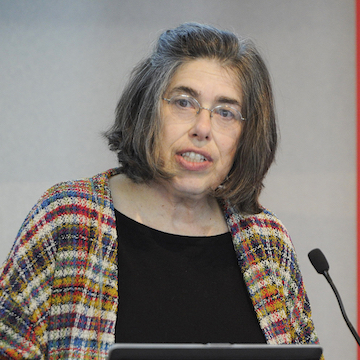
Helen Epstein
"Inter-Generational Effects of Genocide: A Survivor's Daughter Reflects"
2015
Ann Kirschner, Arlene Hutton, Murray Nossel, and Jill Vexler
"Telling Sala's Holocaust Story: Her Letters' Journey into a Book, Exhibit, Play, and Film"
2016
2025-09-10T12:31:40Z
A
CoreFile
neu:cj82pw42x
northeastern:drs:repository:staff
public
001191259
neu:cj82m129v
neu:cj82m129v
001191259
001191259
/downloads/neu:m0419b70g?datastream_id=thumbnail_1
/downloads/neu:m0419b70g?datastream_id=thumbnail_2
/downloads/neu:m0419b70g?datastream_id=thumbnail_3
/downloads/neu:m0419b70g?datastream_id=thumbnail_4
/downloads/neu:m0419b70g?datastream_id=thumbnail_5
/downloads/neu:m0419b70g?datastream_id=thumbnail_1
/downloads/neu:m0419b70g?datastream_id=thumbnail_2
/downloads/neu:m0419b70g?datastream_id=thumbnail_3
/downloads/neu:m0419b70g?datastream_id=thumbnail_4
/downloads/neu:m0419b70g?datastream_id=thumbnail_5
VideoFile
VideoFile
neu:cj82m129v
001191259
/downloads/neu:m0419b70g?datastream_id=thumbnail_1
/downloads/neu:m0419b70g?datastream_id=thumbnail_2
/downloads/neu:m0419b70g?datastream_id=thumbnail_3
/downloads/neu:m0419b70g?datastream_id=thumbnail_4
/downloads/neu:m0419b70g?datastream_id=thumbnail_5
VideoFile
Holocaust Awareness Week: Robert Salomon Morton Lecture Series, Thursday, January 26, 2017.
Holocaust Awareness Week: Robert Salomon Morton Lecture Series, Thursday, January 26, 2017.
Holocaust Awareness Week
Holocaust Awareness Week
Robert Salomon Morton Lecture Series, Thursday, January 26, 2017
Robert Salomon Morton Lecture Series, Thursday, January 26, 2017
Professor Philippe Sands' lecture given as part of Northeastern University's Holocaust Awareness Week annual events
Speaker
Speaker
Speaker
Speaker
Northeastern University (Boston, Mass.).
Holocaust Awareness Committee
Northeastern University (Boston, Mass.).
Holocaust Awareness Committee
Creator
Creator
video recordings (physical artifacts)
2017-01-26
2017-01-26
English language captioning provided by Northeastern University Library staff.
"2017 Holocaust Awareness Week"
Holocaust, Jewish (1939-1945)
World War, 1939-1945
Holocaust, Jewish (1939-1945)
World War, 1939-1945
http://hdl.handle.net/2047/D20241838
http://hdl.handle.net/2047/D20241838
Holocaust, Jewish (1939-1945)
World War, 1939-1945
Holocaust Awareness Week
Holocaust and Genocide Awareness Committee records (A67)
Holocaust Awareness Week
Holocaust awareness series. Morton lecture ; 2006-
Holocaust Awareness Week: Robert Salomon Morton Lecture Series, Thursday, January 26, 2017.
holocaust awareness week robert salomon morton lecture series thursday january 000026 002017
2017/01/26
Holocaust Awareness Week
2017-01-26
Holocaust, Jewish (1939-1945)
World War, 1939-1945
Sands, Philippe
Waxman, Dov
Sands, Philippe
Waxman, Dov
Northeastern University (Boston, Mass.).
Holocaust Awareness Committee
Sands, Philippe
info:fedora/afmodel:CoreFile
info:fedora/neu:cj82m129v
2025-09-10T12:31:41.168Z
Philippe Sands
"East West Street: A Personal Account of Genocide and Crimes Against Humanity"
2017
2024-11-20T18:38:10Z
A
CoreFile
neu:f1881s257
northeastern:drs:repository:staff
northeastern:drs:college_of_social_sciences_humanities:holocaust_awareness_committee
public
000127586
neu:cj82m129v
neu:cj82m129v
000127586
000127586
/downloads/neu:f1881t01v?datastream_id=thumbnail_1
/downloads/neu:f1881t01v?datastream_id=thumbnail_2
/downloads/neu:f1881t01v?datastream_id=thumbnail_3
/downloads/neu:f1881t01v?datastream_id=thumbnail_4
/downloads/neu:f1881t01v?datastream_id=thumbnail_5
/downloads/neu:f1881t01v?datastream_id=thumbnail_1
/downloads/neu:f1881t01v?datastream_id=thumbnail_2
/downloads/neu:f1881t01v?datastream_id=thumbnail_3
/downloads/neu:f1881t01v?datastream_id=thumbnail_4
/downloads/neu:f1881t01v?datastream_id=thumbnail_5
VideoFile
VideoFile
neu:cj82m129v
000127586
/downloads/neu:f1881t01v?datastream_id=thumbnail_1
/downloads/neu:f1881t01v?datastream_id=thumbnail_2
/downloads/neu:f1881t01v?datastream_id=thumbnail_3
/downloads/neu:f1881t01v?datastream_id=thumbnail_4
/downloads/neu:f1881t01v?datastream_id=thumbnail_5
VideoFile
Holocaust Awareness Week: Robert Salomon Morton Lecture Series, Omer Bartov, 27th annual lecture, April 2, 2019.
Holocaust Awareness Week: Robert Salomon Morton Lecture Series, Omer Bartov, 27th annual lecture, April 2, 2019.
Holocaust Awareness Week
Holocaust Awareness Week
Robert Salomon Morton Lecture Series, Omer Bartov, 27th annual lecture, April 2, 2019
Robert Salomon Morton Lecture Series, Omer Bartov, 27th annual lecture, April 2, 2019
video recordings (physical artifacts)
2019-04-02
2019-04-02
English language captioning provided by Northeastern University Library staff.
Morton lecture
Omer Bartov
Holocaust awareness
Morton lecture
Omer Bartov
Holocaust awareness
http://hdl.handle.net/2047/D20313746
http://hdl.handle.net/2047/D20313746
Morton lecture
Omer Bartov
Holocaust awareness
Holocaust Awareness Week
Holocaust and Genocide Awareness Committee records (A67)
Holocaust Awareness Week: Robert Salomon Morton Lecture Series, Omer Bartov, 27th annual lecture, April 2, 2019.
holocaust awareness week robert salomon morton lecture series omer bartov 000027th annual lecture april 000002 002019
2019/04/02
Holocaust Awareness Week
2019-04-02
Morton lecture
Omer Bartov
Holocaust awareness
info:fedora/afmodel:CoreFile
info:fedora/neu:cj82m129v
2024-11-20T18:38:17.704Z
Omer Bartov
"Anatomy of a Genocide: Lessons of Studying Mass Murder from Below"
2019
2021-06-10T13:49:46Z
A
CoreFile
neu:ww72bh154
northeastern:drs:repository:staff
northeastern:drs:library:archives
public
001112951
neu:cj82m129v
neu:cj82m129v
001112951
001112951
/downloads/neu:ww72bh464?datastream_id=thumbnail_1
/downloads/neu:ww72bh464?datastream_id=thumbnail_2
/downloads/neu:ww72bh464?datastream_id=thumbnail_3
/downloads/neu:ww72bh464?datastream_id=thumbnail_4
/downloads/neu:ww72bh464?datastream_id=thumbnail_5
/downloads/neu:ww72bh464?datastream_id=thumbnail_1
/downloads/neu:ww72bh464?datastream_id=thumbnail_2
/downloads/neu:ww72bh464?datastream_id=thumbnail_3
/downloads/neu:ww72bh464?datastream_id=thumbnail_4
/downloads/neu:ww72bh464?datastream_id=thumbnail_5
VideoFile
VideoFile
neu:cj82m129v
001112951
/downloads/neu:ww72bh464?datastream_id=thumbnail_1
/downloads/neu:ww72bh464?datastream_id=thumbnail_2
/downloads/neu:ww72bh464?datastream_id=thumbnail_3
/downloads/neu:ww72bh464?datastream_id=thumbnail_4
/downloads/neu:ww72bh464?datastream_id=thumbnail_5
VideoFile
28th Annual Robert Salomon Morton Lecture: David Nirenberg.
28th Annual Robert Salomon Morton Lecture: David Nirenberg.
28th Annual Robert Salomon Morton Lecture
28th Annual Robert Salomon Morton Lecture
David Nirenberg
David Nirenberg
From their earliest origins to the present moment, Christians and Muslims have given shape to their faiths by interacting with and thinking about Jews and Judaism. How has that long history of thought contributed to anti-Semitism in the past and present? And what can the study of that history offer the future? David Nirenberg, whose many books include Anti-Judaism: The Western Tradition, teaches in the Committee on Social Thought and the Department of History at the University of Chicago, where he is also the Dean of the Divinity School. Sponsored by the Robert S. Morton Lecture Fund, the Gustel and Ernst Giesen Morton Lecture Fund, and the Gustel Cormann Giessen Memorial Fund at Northeastern University.
Speaker
Speaker
Northeastern University (Boston, Mass.)
Holocaust and Genocide Awareness Committee
Northeastern University (Boston, Mass.)
Holocaust and Genocide Awareness Committee
Creator
Creator
video recordings
2021-04-07
2021-04-07
Antisemitism
History
Robert Salomon Morton Lecture
Antisemitism
History
Robert Salomon Morton Lecture
http://hdl.handle.net/2047/D20406399
http://hdl.handle.net/2047/D20406399
Antisemitism
History
Robert Salomon Morton Lecture
28th Annual Robert Salomon Morton Lecture
Holocaust and Genocide Awareness Committee records (A67)
28th Annual Robert Salomon Morton Lecture: David Nirenberg.
000028th annual robert salomon morton lecture david nirenberg
2021/04/07
28th Annual Robert Salomon Morton Lecture
2021-04-07
Antisemitism History
Robert Salomon Morton Lecture
Nirenberg, David
Nirenberg, David
Northeastern University (Boston, Mass.)
Holocaust and Genocide Awareness Committee
Nirenberg, David
info:fedora/afmodel:CoreFile
info:fedora/neu:cj82m129v
2021-06-10T13:49:47.577Z
David Nirenberg
"Does the Past History of Antisemitism Tell Us Anything about its Future?"
2021
